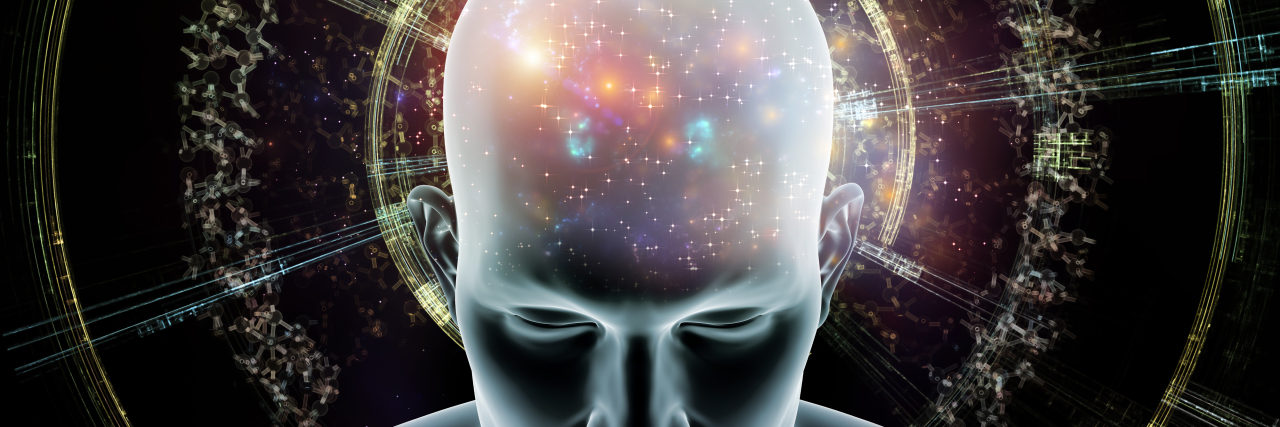“I’m an alien from inner space.”
– Jamila Woods
Things stick with me. When I wash my hands, the line from the HBO series “Westworld” about the mechanicality (I also love making up words) of soap inevitably manifests in my mind.
When my dog kisses me, I am inevitably (and immediately) reminded of Cat Stevens’ “I Love My Dog,” which begins to play inside my head.
When I am given a play-by-play, I recall the hilarious line from the film “13 Going On 30,” “Do whatever you want, Matt. It’s not like I need a play-by-play” (despite disagreeing with the general sentiment of such a statement).
Every. Single. Time. Point made, I think.
When I was in my mid-teens, I had a conversation with a stranger about grammar. I don’t recall how the conversation or topic catalyzed, but what they said is crystallized within my memory: “Some people are hyphenators, and some are not — I’m a hyphen-person.” They continued, providing examples of words they might hyphenate that others might not, including hyphen-person. This stranger’s unapologetic commitment to counter-culture, to their self, remains a constant inspiration to me in being my unapologetic self.
Ever since this conversation, I have used hyphenation to create meaning — where I can — when there is none (for me). The hyphenation of myself into my-self gave me the realization that my-self is who I choose to be — how I choose to define my self (as in the self belonging to me).
Before, I could roll myself around my brain as much as I wanted, but I couldn’t understand it. It was a word without meaning. When I asked my-self: Who is myself?, the only answer that would come was: Me. But this fallacious answer couldn’t satisfy me; it begged the question.
This is just one example (of many) of how I perceive my mind to operate differently from allists (non-autists).
Lastly, regarding the quote from Jamila Woods below the title of this post, I frequently draw personal meaning from lyrics, statements, and dialogues. Many people — too many, I think — would relegate this to the “autistic symptom” of masking, and I would respectfully disagree.
I simply sculpt and define my-self through an amalgam of sources, not least of which my own. When I first heard Jamila Woods sing the opening to her song “Way Up,” I felt alive.
I’m an alien from inner space.
…I felt relatable, represented, understandable, and definable. (I love an Oxford comma.) For what it’s worth, I also love “Vampire Weekend.”
The alien trope in the autistic community, possibly a direct result of Freudian psychoanalytic thinking, is hotly contested as a toxic and harmful metaphor that is often employed by allists to define the autistic experience. Don’t misunderstand me as I embrace Woods’ poetry: I agree that it is problematic (read: wrong) for allists to use alien or any other language to define the autistic experience (which Woods is not doing, to clarify), and I despise Freud’s death drive theory.
That said, I don’t necessarily agree that it is problematic for autists to choose to identify with the alien concept. (Sidenote: both autists and sidenote are underscored in red as non-words on many platforms; clearly we can’t be relying on allists to decide what is “right,” and this only highlights for me the need to embrace what I feel to be my truth as an autistic person.)
One issue autistic folks take with the alien trope is that it dehumanizes us by identifying us with/as non-humans. In their 2017 book “Authoring Autism: On Rhetoric and Neurological Queerness” (which I love and highly recommend), autistic author Melanie Yergeau criticizes and denounces the alien trope, asserting that it “position[s] autism as a mechanistic entelechy” and using examples of “autistic-authored [sic] cultural texts and web forums bearing titles such as Wrong Planet or Resident Alien” to (ironically) defend the case against the alien trope.
If they don’t detect the irony in this… Not only is this critique ironic (to me) in that it shames autistic rhetor/ic/s while attempting to defend them, but it also misunderstands the point. I love Jamila Woods’ lyric because it so eloquently humanizes the alien experience.
I am an alien from inner space, from this planet. As an individual with an obsession over language, I take its power very seriously, paying close attention to words, their definitions, and their impacts. (I also may take things too literally sometimes — no, fuck that, literalism is awesome.) “Wrong Planet,” as Yergeau wields, does not resonate with my experience as alien (and even if it did, I would stand by it as a person with the freedom to define my own identity).
I do not believe this is the wrong planet for me, just that — as it stands today — I often feel that way because of the very real fact that autistic minds are pathologized, infantilized, and dehumanized.
Embracing alien has actually been a way to author my own autism.
Before Jamila Woods wrote and released her 2016 debut solo album HEAVN (which features “Way Up” as its ending piece), she said,
… I will make music that heals people.
By “Way Up,” I feel healed.
Getty image by agsandrew.

